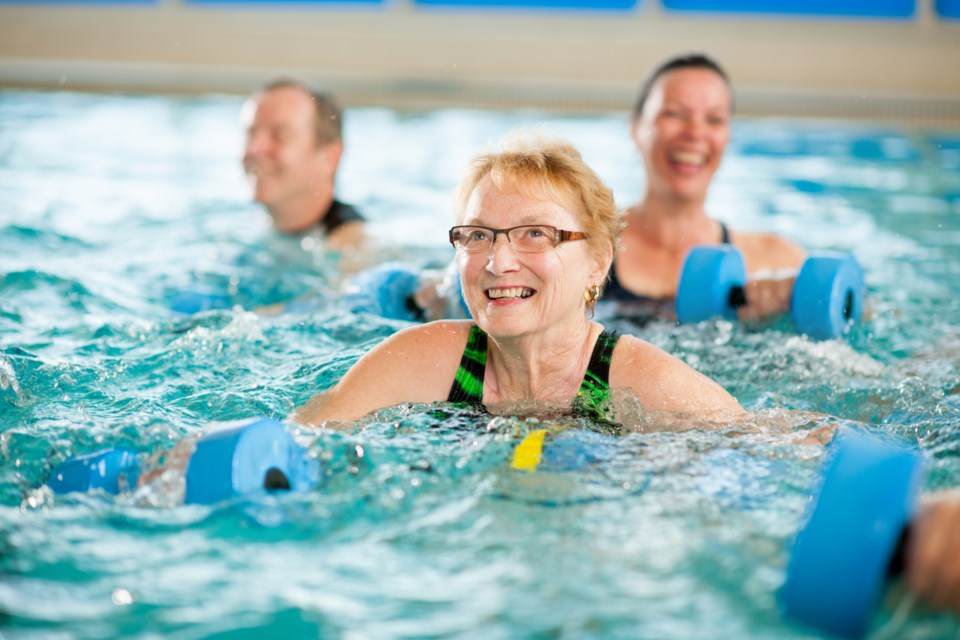Living with dementia or knowing someone who does can be challenging, but staying active both physically and socially can significantly benefit brain health.
According to the Alzheimer Society of Canada, incorporating activities like staying connected and moving into your daily routine can help manage risk factors such as depression, social isolation, high blood pressure, and diabetes. Here are some effective strategies to help you or your loved ones stay engaged and active.
Embrace Physical Activity: Start Small, Think Big
Integrating physical activity into your daily routine is essential for reducing the risk of dementia. Begin with manageable goals to ease into a routine. Simple changes, like walking to nearby destinations instead of driving or taking the stairs for a few floors, can gradually build up your activity level. These small adjustments can pave the way for a healthier, more active lifestyle.
Foster Social Connections: Keep Bonds Strong
Maintaining relationships with friends, family, and colleagues provides vital social engagement. Reach out and initiate conversations or gatherings. Even brief interactions, like a friendly greeting or a quick check-in, can have a positive impact on your mental well-being and that of others.
Combine Physical and Social Activities: Double the Benefits
Pairing physical activities with social interactions can enhance the experience and make it more enjoyable. Invite friends to join you for a hike, a bike ride, or a kayaking trip. Engaging in these activities together not only boosts physical health but also strengthens social bonds, making the activities more fun and less daunting.

Keep It Simple and Enjoyable
When choosing physical activities, opt for those that match your abilities and interests. Activities like gentle yoga or tai chi can help maintain balance and prevent falls, especially if you have reduced mobility. The key is to find something you enjoy so that staying active doesn’t feel like a chore.
Explore Digital Social Activities
If meeting in person is challenging, leverage digital tools to stay connected. Video chats, online games, and virtual events can make remote interactions more engaging. These digital activities can bring excitement and variety to your social life, even from a distance.
Establish a Routine for Consistency
Creating a consistent schedule for both physical and social activities can help maintain a balanced lifestyle. Identify times during the week when you have the most free time for exercise and set regular dates for social interactions. Keeping a simple, manageable schedule ensures you stay committed to your activities.
Try Aerobic Exercises
Aerobic activities, recommended by the Alzheimer Society, are particularly effective in boosting brain health. Activities like swimming, jogging, cycling, or even a brisk walk can increase your heart rate and improve overall health. Walking, in particular, is a safe and accessible form of aerobic exercise that offers significant benefits.
Get Involved in Your Community
Participating in community activities or volunteering can enhance your sense of purpose and expand your social network. Small acts of kindness, like helping a neighbour or volunteering for a local cause, can uplift your spirits and create a positive impact on those around you.
Focus on What You Love
Choose activities that bring you joy and fulfillment. Engaging in physical and social activities that you genuinely enjoy makes it easier to stay committed. If an activity doesn’t resonate with you, don’t hesitate to explore other options that better suit your interests.
Seek Guidance from the Alzheimer Society
For more personalized suggestions and support, reach out to your local Alzheimer Society. They can provide additional resources and recommendations to help you stay active and connected.
Incorporating these tips from the Alzheimer Society of Canada into your routine can help you or your loved ones maintain brain health and enjoy a more active, fulfilling life. Small, consistent steps can lead to significant improvements in overall well-being.





